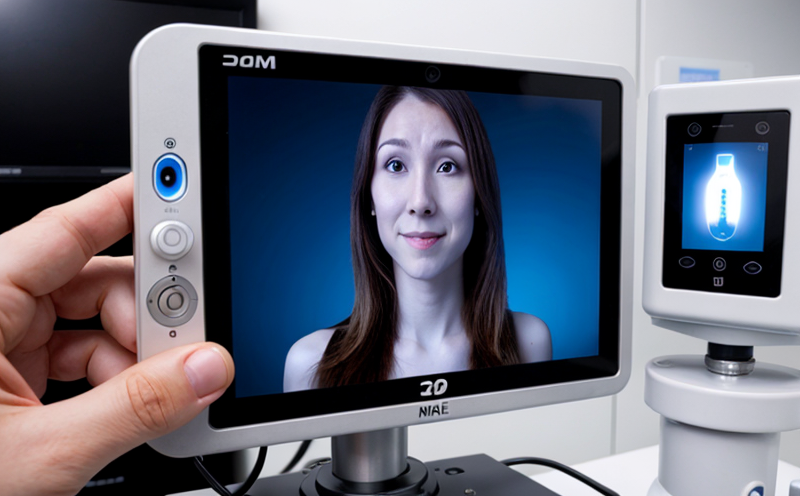MRI Conditionality Testing for Implantable Devices
Medical device testing is a critical phase in ensuring that implantable devices are safe and effective. Among the various tests conducted, MRI conditionality testing stands out as an essential procedure to evaluate how implantable medical devices behave under the influence of magnetic resonance imaging (MRI) machines. This test ensures that patients can safely undergo MRI scans without compromising the integrity or function of their implanted device.
The MRI environment presents unique challenges for implantable devices due to its strong magnetic field, radio frequency pulses, and associated heating effects. These factors can potentially interact with metallic components within the device, leading to displacement, overheating, or even failure of the device. Therefore, it is crucial to subject these devices to rigorous testing under controlled MRI conditions before they reach clinical use.
At Eurolab, we employ state-of-the-art facilities and experienced professionals who specialize in conducting MRI conditionality tests. Our team uses internationally recognized standards such as ISO 10993-26, which provides guidelines for biocompatibility assessment of medical devices undergoing MRI scans.
The testing process involves placing the implantable device into an MRI machine while monitoring its behavior under different magnetic field strengths and radio frequency pulses. Specimen preparation typically includes cleaning the device according to manufacturer specifications followed by precise alignment within the MRI scanner. During the test, we continuously monitor parameters like temperature changes, electromagnetic interference, and any signs of deformation or failure.
Our comprehensive testing approach ensures that every aspect of the implantable device’s interaction with an MRI environment is thoroughly evaluated. By adhering to strict protocols outlined in relevant international standards, we provide reliable data that helps manufacturers make informed decisions about their product design and safety measures.
Eurolab Advantages
At Eurolab, our commitment to excellence in medical device testing is reflected in several key advantages:
- State-of-the-Art Facilities: Our laboratory boasts advanced MRI equipment capable of simulating real-world clinical conditions.
- Experienced Professionals: Our team comprises highly skilled engineers and scientists with extensive experience in medical device testing.
- Precision Testing: We use precise methods to ensure accurate results that meet stringent regulatory requirements.
- Comprehensive Reporting: Our detailed reports provide insights into the performance of your implantable devices under MRI conditions.
These advantages underscore our dedication to delivering high-quality services tailored specifically for the medical device industry. With Eurolab, you can rest assured that your implantable devices will undergo thorough evaluation ensuring they meet all necessary safety standards and regulatory expectations.
Competitive Advantage and Market Impact
Conducting MRI conditionality testing is not only a legal requirement but also a strategic advantage in the competitive medical device market. By ensuring that your implantable devices can safely undergo MRI scans, you demonstrate a commitment to patient safety and satisfaction. This enhances brand reputation and fosters trust among healthcare providers who rely on your products.
- Regulatory Compliance: Adhering to international standards like ISO 10993-26 helps avoid costly delays during the regulatory approval process.
- Innovation: Rigorous testing allows for continuous improvement in product design, enhancing overall performance and reliability.
- Market Trust: Demonstrating that your devices are safe under MRI conditions builds confidence among both healthcare professionals and end-users.
The competitive edge provided by MRI conditionality testing can significantly impact market success. It positions you as a leader in patient safety, which is increasingly becoming a priority for healthcare institutions worldwide. Furthermore, meeting these stringent requirements sets the stage for future innovations and advancements within your product line.
Use Cases and Application Examples
| Use Case | Description |
|---|---|
| Metal-on-Metal Hip Implants | Testing ensures compatibility between the device's metallic components and the MRI environment, preventing potential overheating issues. |
| Pacemakers and Defibrillators | Evaluates whether the pacemaker or defibrillator can function correctly without interference from the MRI machine’s magnetic field. |
| Spinal Implants | Determines if spinal hardware is stable under MRI conditions, which could affect patient mobility and recovery. |
| Cataract Surgery Implants | Verifies that intraocular lenses remain in place during an MRI scan to avoid complications post-surgery. |
- Long-Term Patient Monitoring: Ensures the device remains functional over extended periods, crucial for devices used in long-term treatments like pacemakers.
- Post-Surgical Care: Allows healthcare providers to monitor patients post-surgery safely without risks associated with MRI scans involving implanted devices.
The successful outcome of these tests can lead to better treatment outcomes, improved patient quality of life, and increased market share for your products. By incorporating MRI conditionality testing into your development process early on, you ensure that your implantable devices are not only safe but also capable of meeting evolving healthcare needs.





